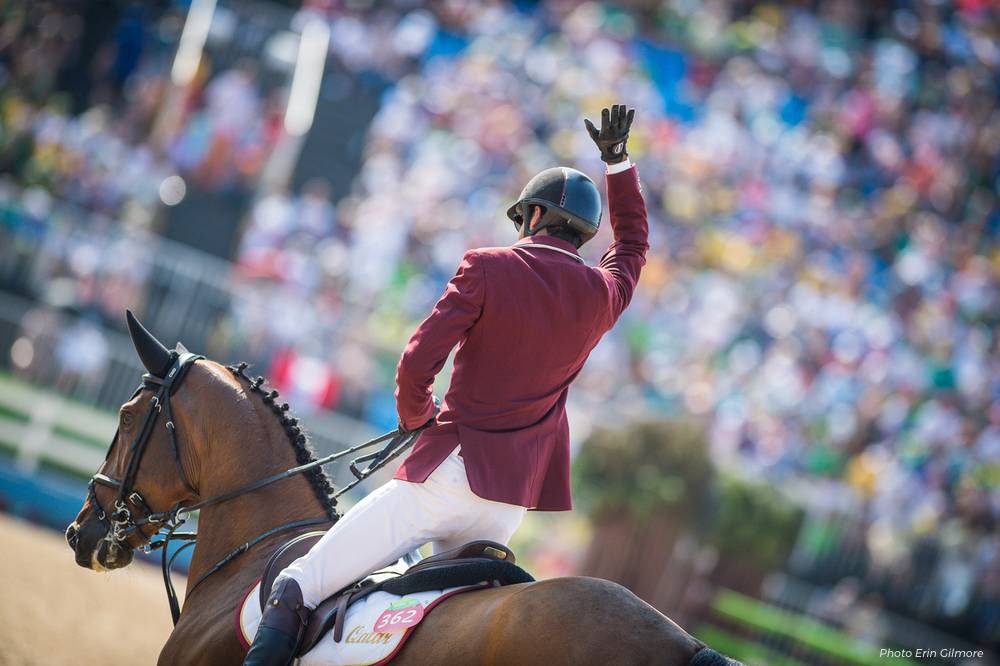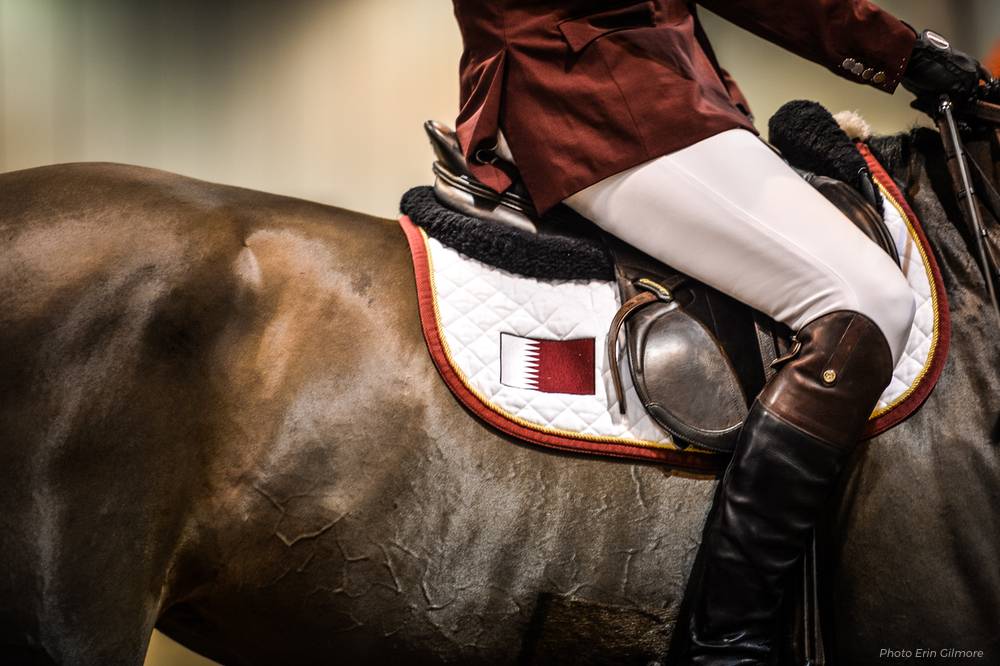Let the Tokyo 2020 Controversies Begin: Part 1

On the eve of a critical qualifying event in a foreign country, a team of Olympic athletes is in a hookah bar, smoking a water pipe to relax. Other athletes are also in the bar, including the Olympic team’s closest rivals. In a daring act of sabotage, an illicit substance is snuck into the hookah pipe, and when the athletes are tested during the following day’s competition, a positive result for a banned substance comes back. The Olympic team is thusly stripped of its qualifying result and the rival athletes that had been in the bar that night are awarded their points.
Is this the opening scene of a dramatic film, a new spy novel, or another drama arising from the sport of international show jumping?
Yeah. You guessed it. The paragraph above is an actual real-life scenario in which the Qatari show jumping team alleges they fell victim to malicious sabotage at the hands of the Moroccan show jumping team. That very serious accusation is outlined along with other details in this 27-page summary by the FEI and the circumstances leading up to it.
Riders Sheikh Ali Al Thani and Bassem Mohammad are Qatar’s most accomplished show jumping riders. Four years ago, they helped Qatar qualify a team for the first time at the 2016 Rio Olympics and they both rode on that team. They were and are serious riders, and always took the sport and their own conduct seriously. Bassem is so “straight edge” that he always stepped off the podium before champagne spray moments, in order to avoid touching alcohol.
“Whether the riders are the unwitting victims of sabotage or are just unwilling to admit they slipped up, this is one of those situations that seems like it could have been avoided.”
With this year’s 2020 Tokyo Olympics on the horizon, a full Qatari team was in Morocco last October for CSIO4*-W Rabat, a designated Olympic qualifier and the last chance to earn qualifying points for Tokyo for Group F, which Egypt, Qatar and Morocco are all a part of. Two tickets to Tokyo were on hand and six of the 15 teams competing in the Nations Cup were after them. Egypt won the class and one ticket, and Qatar placed over Morocco, in 8th place, to win the other space.
That is, until the hammer came down on them early this year. Turns out that the two Qatari riders had both tested positive for Carboxy-THC, i.e., cannabis. Inarguably a prohibited substance and violation of the Anti-Doping Rules for Human Athletes in conjunction with The World Anti-Doping Code, the positive test equaled in automatic disqualification and a stripping of all results.

Hearings, B-samples, lawyers quickly commenced. Not only did the Qatari athletes deny that they had willingly taken THC, they alleged a case of sabotage. For Qatari riders, meeting in the hotel bar every night and sharing a hookah (they refer to it as “shisha”) pipe is customary and a common practice for athletes who want to relax. They had put their team manager in charge of making sure that only harmless shisha tobacco was used in the pipe. Therefore, when the positive tests came back, they were sure that someone, and not just any someone but someone working as an operative for the Moroccan riders, had spiked their shisha with Moroccan “kif”, which is what they call cannabis in Morocco. Cue the James Bond theme here.
How exactly Qatar can prove this is unknown, but they attested all of this to the FEI in their official defense. Meanwhile, a criminal complaint has been lodged about the incident in Morocco and is said to still be unfolding. Team Qatar also objected to the FEI’s quick timeline on this doping case, and objected to how they were informed of the suspension, and objected to not being able to present their case in person but rather video conference, and objected to anything they could object to in order to stop their Olympic chances from going up in –pun intended- smoke.
“Bassem is so ‘straight edge’ that he always stepped off the podium before champagne spray moments, in order to avoid touching alcohol.”
Ultimately none of that mattered, as all this came to a head on Feb. 17, which was the deadline for the FEI to submit team quotas for Tokyo to the IOC. Amid joyful posts last week by team Morocco about their Tokyo qualification, the FEI put out a press release announcing the reallocation of quota spots. Meanwhile, Qatar will most likely bring their case before the Court of Arbitration for Sport.
The moral of this story has to be in the obvious precaution of not smoking anything before a big event — even if your team manager says it’s OK. Why risk it? Whether the riders are the unwitting victims of sabotage or are just unwilling to admit they slipped up, this is one of those situations that seems like it could have been avoided. Just say no to shisha, kids. You never really know what’s in that pipe.


